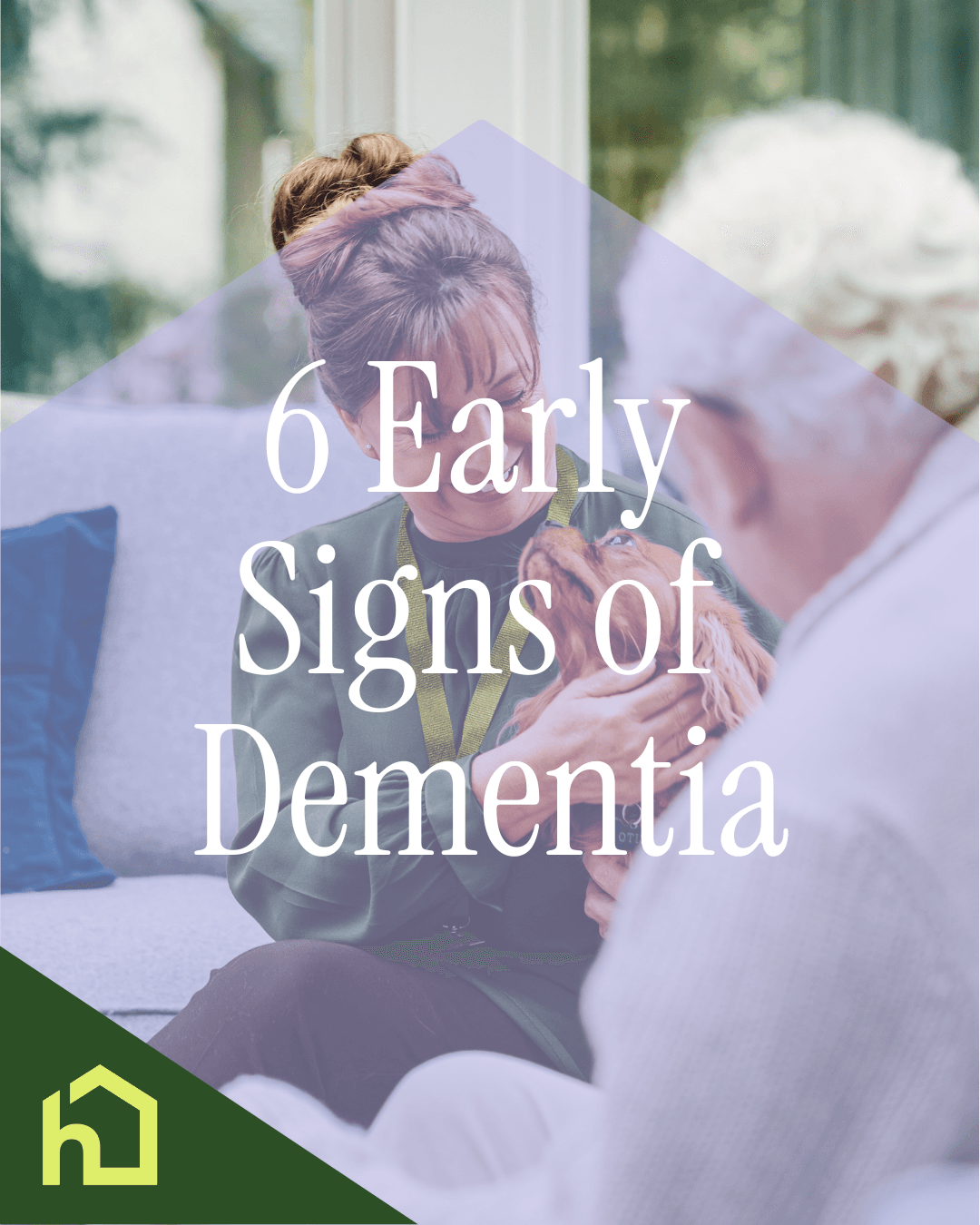6 Early Signs of Dementia: What to Look Out For

Dementia: Early Clues That Shouldn’t Be Ignored
Dementia is a progressive brain disorder that interferes with memory, reasoning, and daily life. While it often affects older adults, it’s not a natural part of ageing. Spotting early symptoms can mean getting help sooner, slowing down progression, and ensuring a higher quality of life. Many of these signs start subtly and can easily be mistaken for simple forgetfulness or stress, but over time, they tend to increase in frequency and severity.
Let’s explore six early warning signs you shouldn’t overlook.
-
Memory Loss That Disrupts Daily Life
Sure, we all forget where we parked or misplace our keys—but with dementia, memory loss is more persistent and disruptive. It’s especially noticeable when someone:
- Repeatedly asks the same question
- Relies heavily on memory aids or other people
- Forgets recently learned information like appointments or names
This isn’t just typical forgetfulness—it’s forgetting information that was just learned, again and again.
-
Difficulty Solving Problems or Making Plans
If someone who was once good at budgeting, managing bills, or cooking starts struggling with simple tasks, take note. Early dementia can interfere with a person’s ability to:
- Work with numbers (like keeping track of spending)
- Follow a recipe or a familiar sequence
- Focus or follow through with tasks that require planning
It might look like frustration, procrastination, or confusion—but it could be a deeper issue.
-
Confusion with Time or Place
Getting momentarily disoriented is normal—but people with early dementia may:
- Forget what day, season, or even year it is
- Get lost in familiar places
- Not understand where they are or how they got there
This disconnection from time and surroundings can be scary—for them and their loved ones.
-
Trouble with Words in Speaking or Writing
Struggling to find the right words, losing a train of thought mid-sentence, or calling everyday items by the wrong name (like saying “hand clock” instead of “watch”) can be early indicators. You might notice someone:
- Repeating themselves often
- Avoiding conversations or pausing awkwardly
- Having trouble expressing themselves in writing
These aren’t just slips of the tongue—they’re signs of language and cognitive challenges.
-
Misplacing Things & Losing the Ability to Retrace Steps
We all lose stuff—but folks with dementia may put items in bizarre places. Think car keys in the freezer or glasses in the sugar bowl. Even more concerning is the inability to backtrack and figure out where the item might be. They might also start accusing others of stealing, which is often rooted in confusion rather than malice.
-
Mood and Personality Changes
One of the more subtle—and sometimes heartbreaking—signs is a shift in mood or personality. Someone who’s usually cheerful might become irritable, anxious, or suspicious. Other signs include:
- Sudden withdrawal from hobbies or social situations
- Seeming confused or fearful, especially in new settings
- Becoming easily upset, especially outside of their routine
These changes can feel personal, but they’re often driven by disorientation and frustration.
Why Early Detection Matters
So, what’s the big deal about catching dementia early? First off, some medical issues that resemble dementia—like vitamin deficiencies or thyroid problems—can actually be reversed with treatment. Getting a diagnosis early opens the door to treatments that may slow the progression or improve symptoms. It also gives families more time to prepare, plan care, and understand what’s ahead. Most importantly, it creates space for compassion over conflict, helping loved ones react with empathy rather than frustration.
What to Do if You’re Concerned
If you spot one or more of these signs in yourself or someone close to you, don’t brush it off. Book a visit to a GP or healthcare provider. They can run tests, rule out other causes, and guide you toward the right resources. Keep a diary of symptoms if you can—it helps paint a clearer picture of what’s been going on. And start the conversation early. Bring it up with kindness, express concern, and offer support rather than judgment. These moments are tender, but starting early means you won’t be scrambling later.
How We Can Help
At Home Instead Cleveland, we understand how overwhelming a dementia diagnosis can feel. That’s why our trained caregivers are here to offer not just professional care—but real peace of mind. Our support includes personalised care plans, help with daily routines, and emotional support for the whole family. We work to keep your loved ones safe, comfortable, and connected in the place they know best—home.
Download Your Free Dementia Symptoms Checklist and Help sheet from The Alzheimer’s Society
Want something you can print out and keep on hand? Check out this free Help sheet and Symptoms checklist from The Alzheimer’s Society.